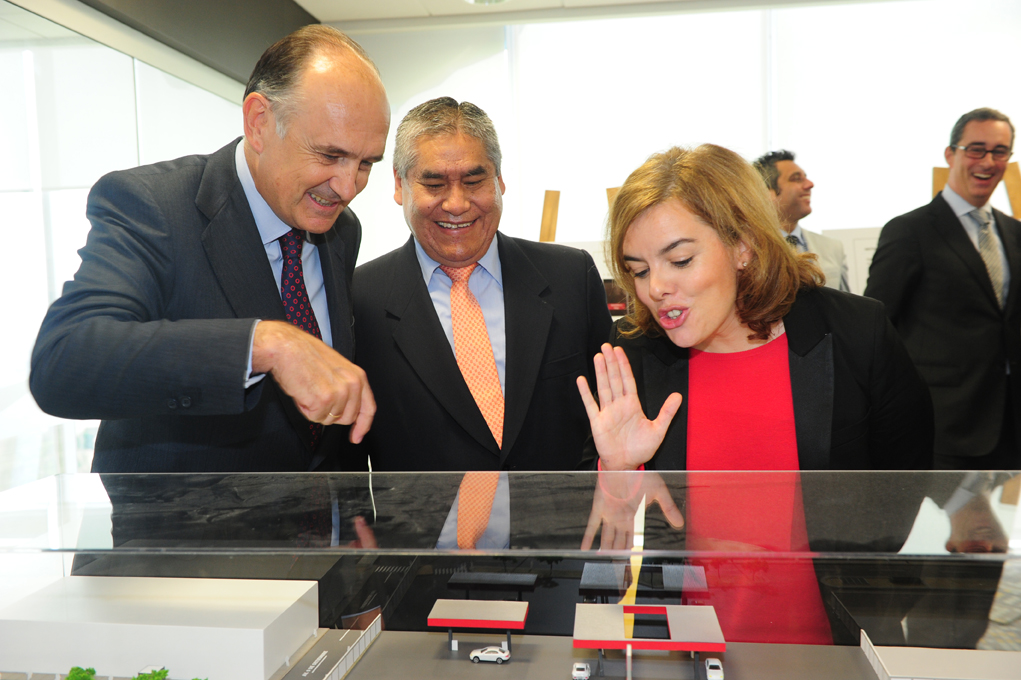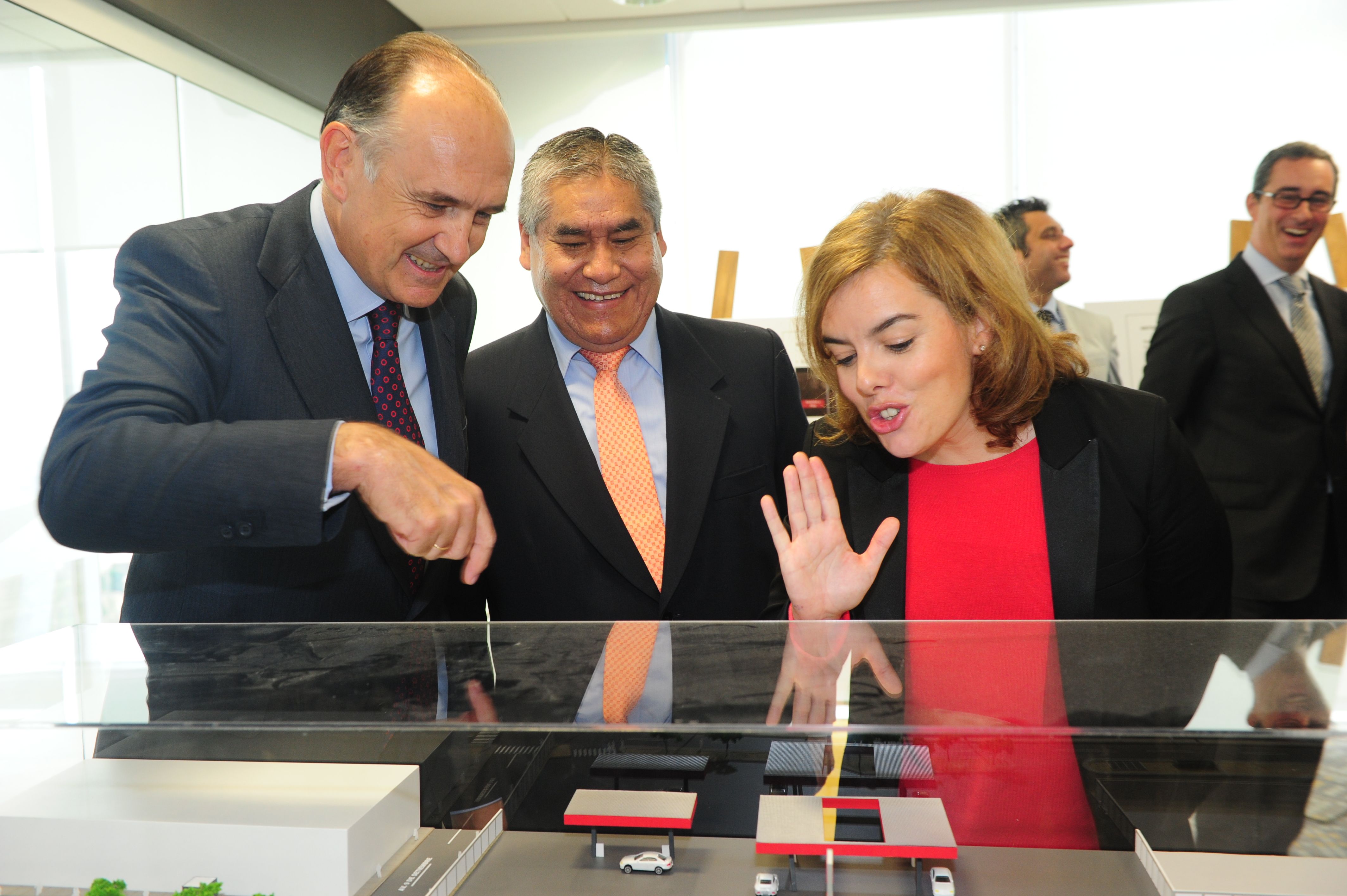20/07/2014

During his presentation, Mr. Béjar underlined that private investment has contributed to GDP growth in Peru, accounting for 22%. A notable portion of that investment is connected to infrastructure development, the prime exponent of which is the expansion of Lima Metro. Peru is currently one of the fastest-growing economies in Latin America, with expectations of sustained growth in excess of 5% in the coming years.
In terms of experience, Juan Béjar also highlighted the value contributed by infrastructure built in Spain in the last two decades and its impact on citizens' living standards and on the competitiveness of economic agents, similar to the process currently under way in Peru.
Five-year project
The contract to build line 2 of Lima Metro and a spur from line 4 to the airport was awarded to the Nuevo Metro de Lima consortium, which is led by ACS and FCC and also includes Italian companies Impregilo and Ansaldo and local company Cosapi. Metro de Madrid is acting as advisor on the project.
The 3.9 billion euro contract, Peru's largest infrastructure project, was awarded at the end of March. As part of the contract, the consortium will design, build, finance, operate and maintain line 2 of Lima Metro and the spur from line 4. Construction is expected to be completed in 5 years, after which time the 30-year operation period will commence.
The contract also includes executing the superstructure, supplying the rolling stock, and installing the electromechanical equipment, railway systems and power supply required to run the underground railway.
In total, the consortium will build 43 kilometres of track in two spurs: 35 kilometres of underground track, 8 kilometres of above-ground track, and 35 stations measuring 150 metres in length. Over 3,000 professionals will work on the project. The choice of an underground transit system will reduce the impact on city life as well as transforming neighbourhoods since many of the locations above the new Metro line will become green areas.
Line 2, measuring almost 27 kilometres in length, will run east-west through Lima, from Ate to Callao, where FCC is also working to upgrade the port. That line is expected to have the capacity to serve more than 1 million passengers per day, who will save up to 90 minutes on their commute. Line 2 will cross 13 of Lima's most populated districts.
The spur from line 4 to connect the city to the airport will run along 8 kilometres of tunnel, from Avenida Faucett to Avenida Néstor Gambetta. Eight stations will be built along this line.
In May, consortium leaders announced that the first five kilometres of new metro line would become operational in May 2016.
According to Mr. Béjar, the consortium members currently manage over 100 transport concessions worldwide and have built over 3,650 kilometres of tunnel, including 800 kilometres with tunnel-boring machines (TBM).
Juan Béjar shares details of the Lima Metro project with Spain's Deputy Premier
• Juan Béjar shared details of the deadlines and conditions of the 3.9 billion euro project with Deputy Premier Soraya Sáenz de Santamaría during her visit to Peru
• He highlighted the impact of private sector investment in infrastructure on GDP growth in Peru, one of Latin America's fastest-growing economies.

Juan Béjar, Vice-Chairman and CEO of FCC, discussed the Lima Metro construction project, awarded to the consortium led by ACS and FCC in March, with Soraya Sáenz de Santamaría, Spain's Deputy Prime Minister, at an event in Lima yesterday. The presentation was among the activities scheduled as part of Sáenz de Santamaría's visit to Peru and Chile.
During his presentation, Mr. Béjar underlined that private investment has contributed to GDP growth in Peru, accounting for 22%. A notable portion of that investment is connected to infrastructure development, the prime exponent of which is the expansion of Lima Metro. Peru is currently one of the fastest-growing economies in Latin America, with expectations of sustained growth in excess of 5% in the coming years.
In terms of experience, Juan Béjar also highlighted the value contributed by infrastructure built in Spain in the last two decades and its impact on citizens' living standards and on the competitiveness of economic agents, similar to the process currently under way in Peru.
Five-year project
The contract to build line 2 of Lima Metro and a spur from line 4 to the airport was awarded to the Nuevo Metro de Lima consortium, which is led by ACS and FCC and also includes Italian companies Impregilo and Ansaldo and local company Cosapi. Metro de Madrid is acting as advisor on the project.
The 3.9 billion euro contract, Peru's largest infrastructure project, was awarded at the end of March. As part of the contract, the consortium will design, build, finance, operate and maintain line 2 of Lima Metro and the spur from line 4. Construction is expected to be completed in 5 years, after which time the 30-year operation period will commence.
The contract also includes executing the superstructure, supplying the rolling stock, and installing the electromechanical equipment, railway systems and power supply required to run the underground railway.
In total, the consortium will build 43 kilometres of track in two spurs: 35 kilometres of underground track, 8 kilometres of above-ground track, and 35 stations measuring 150 metres in length. Over 3,000 professionals will work on the project. The choice of an underground transit system will reduce the impact on city life as well as transforming neighbourhoods since many of the locations above the new Metro line will become green areas.
Line 2, measuring almost 27 kilometres in length, will run east-west through Lima, from Ate to Callao, where FCC is also working to upgrade the port. That line is expected to have the capacity to serve more than 1 million passengers per day, who will save up to 90 minutes on their commute. Line 2 will cross 13 of Lima's most populated districts.
The spur from line 4 to connect the city to the airport will run along 8 kilometres of tunnel, from Avenida Faucett to Avenida Néstor Gambetta. Eight stations will be built along this line.
In May, consortium leaders announced that the first five kilometres of new metro line would become operational in May 2016.
According to Mr. Béjar, the consortium members currently manage over 100 transport concessions worldwide and have built over 3,650 kilometres of tunnel, including 800 kilometres with tunnel-boring machines (TBM).
Images
Juan Béjar showing the Lima Metro project to the Deputy Prime Minister of Spain and the Deputy Minister of Transports of Peru

Juan Béjar showing the Lima Metro project to the Deputy Prime Minister of Spain and the Deputy Minister of Transports of Peru








